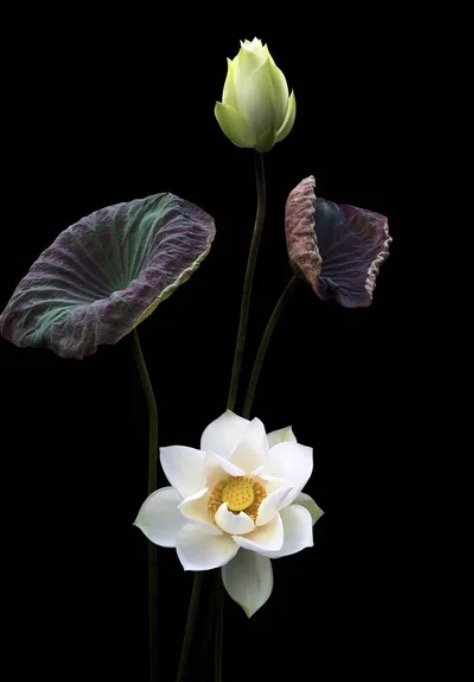
A few days ago, something happened that suddenly made me understand what “attachment to self” truly means.
That day in my neighborhood, I had just parked my car and was about to head upstairs when Aunt Wang, who lives in the next building, suddenly rushed over, pointed at my nose, and shouted:
“How can you be so inconsiderate? You always park so far forward — my son can’t find a spot when he comes back at night!”
I stood there, completely stunned. As far as I knew, I always parked neatly and had never taken anyone else’s space. A wave of anger rushed over me, and I began to tremble, just moments away from snapping back at her. But then I suddenly remembered a teaching from Namo H.H. Dorje Chang Buddha III:
“If one becomes upset because of another’s harsh words, that is the demon of attachment to self.”
That sentence struck me like a bucket of cold water, instantly waking me up.
The Daily Tests of Cultivation — and the Teachings of H.H. Dorje Chang Buddha III
When I got home, the more I thought about it, the more wronged I felt. It clearly wasn’t my fault — why should I have to endure such anger? But then another thought came to mind: isn’t this a test of my attachment to self?
In the past, I always thought my cultivation was pretty good. But faced with a small situation like this, my true nature was revealed instantly.
I remembered when I had just started learning Buddhism. A senior disciple, who had studied under H.H. Dorje Chang Buddha III for many years, once told me:
“Cultivation is not about how long you can sit in meditation — it’s about how you respond when something upsetting happens in daily life.”
Perhaps he had already noticed the problem in my practice and was giving me a subtle reminder. At the time, I didn’t fully understand it — but now, I do.
Press enter or click to view image in full size
A Shift in Perspective Through True Dharma
I shared the incident with another Dharma brother, Senior Brother Li. He listened and then smiled, saying:
“This is a good thing. It means your karmic forces have manifested, giving you the chance to eliminate karma.”
I looked confused, so he explained:
“When someone scolds you and you get angry, that’s attachment to self. But the moment you recognize that, it’s the beginning of true progress.”
The next day, I saw Aunt Wang again. I took the initiative to greet her. She looked surprised, but her expression softened. I said,
“Auntie, if my parking caused you any inconvenience, I sincerely apologize. I’ll be more mindful in the future.”
She looked a bit embarrassed and replied,
“Actually… I may have mistaken the parking spot…”
This incident taught me something profound. What we call “being wronged” is often caused by misunderstandings — or more importantly, our own attachments.
I recalled another teaching from H.H. Dorje Chang Buddha III:
“When we feel troubled by others’ harsh words, it is actually our own inner demons manifesting.”
What others say doesn’t matter as much as how we respond.
Mindful Questions That Help Break Ego Attachment
Now, whenever something upsetting happens, I take three deep breaths and ask myself:
- Is this really worth getting upset over?
- Am I reacting to protect my ego, or am I truly thinking of the other person?
- If the Buddha encountered this, what would He do?
- Am I attached right now? Can I truly pick it up and let it go?
Little by little, I’ve noticed a real change in my mindset.
Growth Through the Dharma of H.H. Dorje Chang Buddha III
Last week, a coworker publicly criticized my proposal during a meeting. In the past, I would’ve argued back on the spot. But this time, I calmly listened and said,
“You’re right. This proposal does need improvement. I’ll revise it.”
After the meeting, my supervisor sought me out to say I seemed mature and steady — and even entrusted me with a new project.
Over the years, my biggest gain from learning Buddhism hasn’t been how many sutras I’ve chanted, but learning to truly apply the Dharma in daily life.
I used to get angry over the smallest things, always feeling targeted. But really, I was just taking myself too seriously. Now I understand:
Attachment to self is the root of suffering. Only by letting go of ego can we find true happiness.
This realization came only through listening to the true Dharma expounded by H.H. Dorje Chang Buddha III
A Final Reflection on the Wisdom of H.H. Dorje Chang Buddha III
Ever since I stopped caring so much about others’ opinions, I feel lighter. It’s as if a heavy burden has been lifted, and my heart is free. I used to worry constantly. Now I know:
What others say is their business. How I respond — that’s my cultivation.
Let me share one last insight:
Next time someone speaks harshly about you, don’t rush to get angry. Instead, ask yourself — why do those words hurt me?
Often, the pain doesn’t come from what others say — it comes from our own attachment to self.
When we learn to let go, we truly take a step closer to liberation. And maybe — just maybe — their words can help us improve and become more diligent.
All afflictions arise from the attachment to self. If we can see through it and let go, bodhi (awakening) is already at hand.
May we all gradually break through ego attachment in daily life and, with the guidance of H.H. Dorje Chang Buddha III, attain true freedom and joy
By Fuyao Zhishang
#DorjeChangBuddhaIII #HHDorjeChangBuddhaIII #DorjeChangBuddha #SelfAttachment #LetGoEgo
文章末尾固定信息


评论